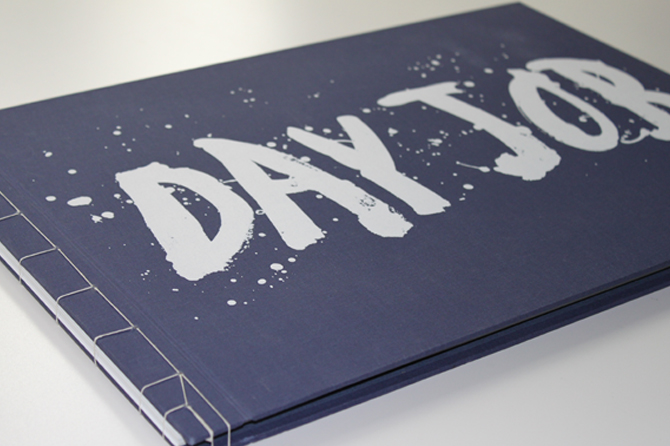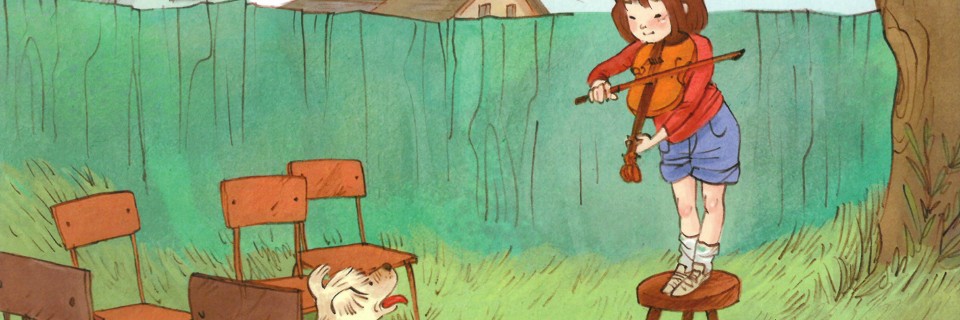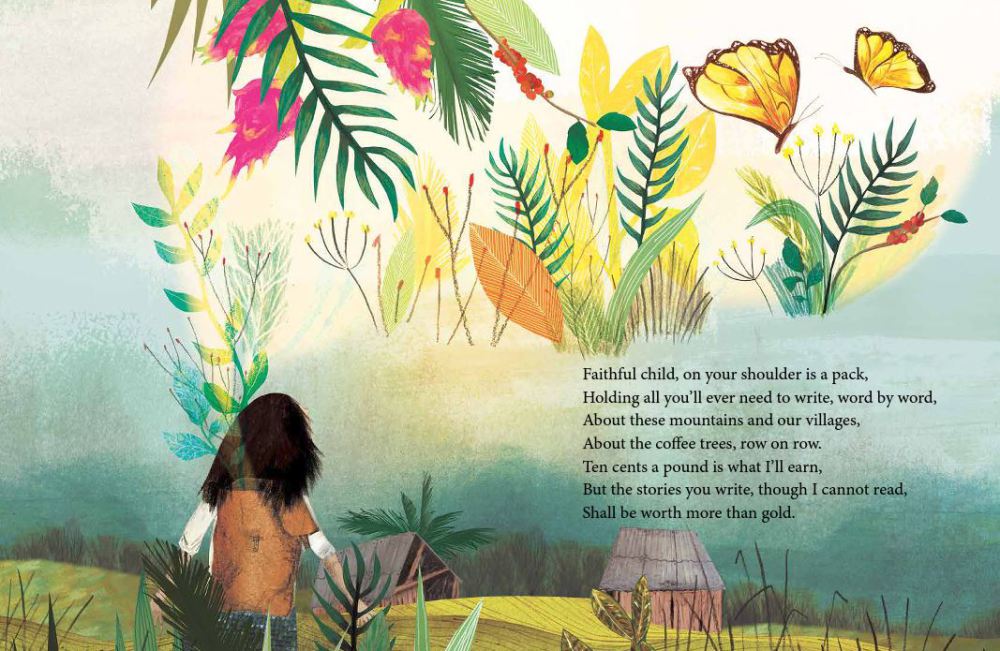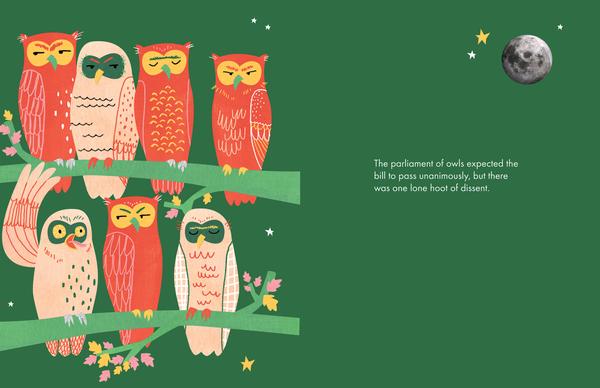How to Make $3000 a Month Writing Children’s Books: A Case for Day Jobs
By Naseem Hrab
When I was a teen, I thought that every children’s author got to sit at home alone and undisturbed, joyfully tapping away at a computer all day and night. Before I went off to university, I learned how impossible it was to make a living off of writing children’s books. Thankfully, I learned about this financial reality before I choose to study English Literature. (Kidding! I still studied English Literature for some reason.)
Bottom line? Most children’s writers have day jobs. Or, in many cases, day careers. In this column, I’m going to make a case for how day careers can help with your writing and ask five children’s writers about how they balance their day careers and their writing careers.
My day career is a lot of fun (marketing children’s books) and it gives me a general sense of financial calm—this last one is priceless, if you ask me. My night career (aka writing) provides me with great personal joy and is what, well, keeps me out of therapy. (Kidding! I also see a therapist. Thanks, OHIP!).
If most writers have day careers, as American screenwriter Lawrence Kasdan said, “Being a writer is like having homework every night for the rest of your life.” The first time I saw this quotation someone had tacked on the words, “And then you die” at the end. Sounds about right.
How can we see having a day career as something that nurtures our creative life, instead of something that gets in the way of it? Personally, learning to be accountable to others in my day career has made me more accountable to myself in my evenings. Also, since my writing’s not paying my bills, I feel like I can take more creative risks with my writing. Did I mention the fact that having to focus on something other than my own writing makes me less neurotic? But enough about me!
Let’s talk to a public servant, a doctor, a lawyer, and two librarians about their day careers and writing lives: Chieri Uegaki, author of the picture books Suki’s Kimono, Hana Hashimoto, Sixth Violin and the forthcoming picture book Ojiichan’s Gift; Nhung N. Tran-Davies, author of the picture book Ten Cents a Pound and the forthcoming middle-grade novel A Grain of Rice; Jennifer Gold, author of the YA novels On the Spectrum, Soldier Doll and Undiscovered Country; Joanne Schwartz, co-author of the picture books The Legend of the Fog and Grandmother Ptarmigan with Qaunaq Mikkigak and author of the picture book Town is by the Sea; and Kyle Lukoff, author of A Storytelling of Ravens.
NH:
What’s your day career?
Chieri Uegaki:
I work in a government office dealing with things that are about as far away from children's books as you can imagine. I deal with office finances, paperwork, reports, filing, clients in person and over the phones, in a generally very busy environment.
Nhung N. Tran-Davies:
I am a full-time family physician with three children, ages 7, 9, and 12.
Jennifer Gold:
I’m a lawyer for a large not-for-profit organization.
Your CanLit News
Subscribe to Open Book’s newsletter to get local book events, literary content, writing tips, and more in your inbox
Joanne Schwartz:
I’m a children’s librarian with the Toronto Public Library. I’ve worked in the system for 30 years, always in the downtown core, the last 15 years at the Lillian H. Smith branch.
Kyle Lukoff:
I'm the librarian at Corlears School, an independent elementary school in New York City, with students from two-years-old up through fifth grade.
NH:
When do you write?
CU:
Whenever I can (which takes discipline I don't always have—I should exercise more, too). When I have an idea or project or a deadline, I will work evenings, and devote at least one day a weekend to it. But I don't have a set schedule. I write notes to myself whenever any kind of inspiration strikes, and I look forward to times spent waiting for something to sneak in an impromptu writing session.
NT:
There are three main times when I write: 1) At the very end of the day, after all the clinic work is done, the house is clean and the children are all fast asleep. So, often it is nearing or past midnight. 2) On weekends, it's usually first thing in the morning and scattered throughout the day when I can sneak away to my writing desk. 3) On vacation, when the kids are swimming in the pool with their dad. I am fortunate enough to have a very supportive husband who cooks for the kids and makes sure I'm fed when I’m stuck at the desk, immersed in writing.
JG:
Weekends for a few hours each day when my kids (ages 9 and 6) are at their extra-curricular activities with my husband. I aim to write 1000-2000 words each time I sit down to write.
JS:
I write on my days off from work. It’s not a lot of time but I treasure every moment of it, each week waiting for those small chunks of time that I’ve carved out for writing. I’m a morning person so the first few hours of the day are my most productive creatively.
KL:
I write a lot during school vacations (winter, spring, especially summer). I also write weekends, and after work but before meeting friends or going to events. NYC is a very busy place and I tend to RSVP to things or make plans with friends without thinking about when I'll find time to write, which is something I’m working on.
NH:
Does your day job inform your work?
CU:
I don’t think it does when it comes to subject matter, but I think working in busy offices all my working life has made me better at the business of writing. I understand the importance of deadlines, of communicating clearly, of working well with others. Also, because my day job can be a stressful one at times, the contrast with the joy and pleasure of writing for children is magnified. I appreciate being able to write children's books even more, and try to enjoy all the opportunities that come with that world.
NT:
Yes, most definitely. Everyday, I meet many patients, each with stories that inspire, fascinate and enlighten me with respect to humanity and the human condition. I draw upon these stories to find the heart of my stories.
JG:
Not specifically, though I do believe that a writer can draw material and inspiration from most things in her life. For example, snippets of conversation, a funny email, a boring meeting—you never know when the opportunity will arise to make use of these in a manuscript.
JS:
Yes, my job definitely informs my writing. I’ve been reading and engaging critically with children’s books for decades. It has been a great education. By the time I sat down to try and write a picture book myself, I had already been swimming in the deep waters of children’s literature for a long time.
KL:
My work as a writer is constantly informed by my other career, and vice versa. A tremendous part of my job is reading picture books to kids, which keeps me informed of current trends in the field, and helps me refine my own writing. And my whole job is centered around children's development—not just as readers and thinkers, but also as people who are figuring out emotions, friendships, their sense of self, and how to exist in this world with others, which is also at the core of writing for that audience.
The views expressed by Open Book columnists are those held by the authors and do not necessarily reflect the views of Open Book.
Naseem Hrab is a writer, a storyteller and a pretty good friend. Her comedy writing has appeared on McSweeney's Internet Tendency and The Rumpus. Naseem worked as a librarian for a time and now works in children's publishing. She lives in Toronto, Ontario.






